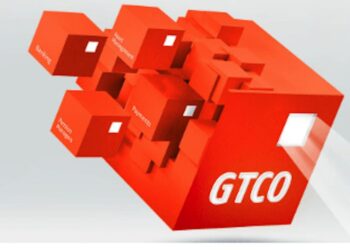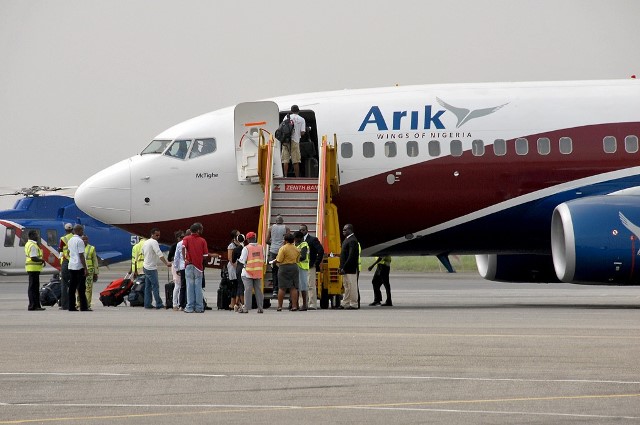The Independent Shareholders Association (ISAN) has expressed concern that the Asset Management Corporation of Nigeria (AMCON) is gradually gravitating toward a failed government agency.
This is due to the high level of debts in the financial sector which currently stands at over N16 trillion, and AMCON’s decision to start purchasing new non-performing loans from banks outside its original mandate.
Sir Sunny Nwosu, the Coordinator Emeritus of ISAN, stated this while addressing journalists on the concern of Nigerian Shareholders over the role of AMCON on sustained depressed returns on investments and the Central Bank of Nigeria’s faulty Interpretation of Insider Credits in Banks.
The failure: Nwosu noted that the lack of due diligence on the troubled bank’s bad debts, and the appalling management of the agency are majorly the reasons behind AMCON’s inability to turn around the toxic assets. He said:
- “Obviously AMCON’s failure to live up to expectations has generated serious stakeholders’ queries and this press conference is one of them questioning the justification for the establishment of AMCON.
- “We also want to submit that the corporation’s delay in turning around the ‘toxic’ loans remains very worrisome, especially now that the federal government is facing dwindling revenue and challenges in executing critical capital projects.”
Ongoing litigations: He noted that AMCON is currently reported to have about N1.7 trillion worth of assets under litigation across the country, adding that as of August 2022, the total recoveries by the corporation are pegged at just about N1.4 trillion. The poor recovery of the agency has prompted most stakeholders to rush to ascertain the current value of the forfeited asset stocks.
He said their inquisition followed noticeable failed efforts made by the organization to dispose of the assets.
Nwosu said with the mandate to acquire toxic loans from troubled banks at a discount, AMCON was expected to dispose of the loans within the stipulated time frame and use the proceeds to leverage the national economy.
He said the government debt recovery agency’s accumulation of excess debts has also become a source of concern to the National Assembly (NASS) as the lawmakers seek a fresh approach out of the increasing number of banks’ non-performing loans.
- “We are also bothered that the debts owed by a few individuals who exploited the loopholes in the current AMCON Act to evade payment. The same high net-worth individuals we gathered equally lobbied and championed the recent amendment of the act establishing AMCON.
- “Currently 350 businessmen and firms still owe the corporation N3.6 trillion, or 81 per cent of N4.4 trillion of the total outstanding debts,” Nwosu said.
Shareholders’ position: He noted that as concerned shareholders, the group urge the federal government and CBN to rise to the national systemic banking industry challenges through sustainable financial sector bailout.
- “Shareholders seriously believe that the federal government floating of AMCON is a distraction that has prolonged the banking industry challenges and must be eliminated with huge funds intervention like in most developing and developed climes.
- “Our position like we said before is that AMCON has overstayed its function and urged the CBN to suspend levying commercial banks.
- “We are averse to AMCON’s successful lobbying of the federal government and lawmakers to extend its operations but our opinion remains that if CBN wants to sustain AMCON, it must not be through levies from the banking industry.
- “We as shareholders are worried that AMCON is reporting losses despite collecting huge levies from banks and having challenges in selling recovered assets from debtors. The poor performance of the corporation is serious to our mind queries the recent National Assembly elongation of AMCON’s life span.
- “In real terms, AMCON’s 10 years life span has ended, the elongation of its life span amounts to playing games with taxpayer’s money and shareholders’ funds. AMCON is killing the banking industry and the entire financial services sector.
- “Overall we want the federal government to tighten the noose on debtors and reject the aroma of the free funds from the banking industry levies but reflect on the negative impact of the levies on the real sector and the economy,” he said.
Their disappointment: Nwosu said the shareholder’s disappointment stemmed from the fact that the federal government’s debt recovery agency, recovered only a paltry N1.4 trillion since its inception.
He added that on the other hand, available data showed that non-performing loans across the financial sector have again increased by more than 150 per cent.
- “At the commencement of its operations, the agency purchased 12,743 non-performing loans or eligible bank assets (EBAs) valued at N3.8 trillion from 22 eligible financial institutions (EFIs) for N1.8 trillion. Equally, the corporation earned about N327.6 billion from 0.5 per cent charges on banks’ total assets on and off-balance sheet items imposed on nine banks between 2020 and 2021.
- “AMCON’s levies on commercial banks increased from N146.9 billion in 2020 to N180.67 billion in 2021. As part of the quick intervention in the banking sector’s bad debts, by CBN through AMCON, the debt recovery agency equally received N125.9 billion from 12 commercial banks listed on the Nigerian Exchange as part of the Sector’s resolution funds in the first quarter of 2022.
- “In the same period, AMCON bank charges increased by 29.5 per cent from N97.18 billion paid in the corresponding period of 2021 to N125.9 billion in the first quarter of 2022.
- “But after 12 years of the agency’s operations, Nigerian shareholders have concluded that the funding of AMCON with levies from commercial banks cannot be continued because of its negative impact on returns on investment and the incapacitation of commercial banks to adequately intervene in the nation’s real sector,” he said.

























